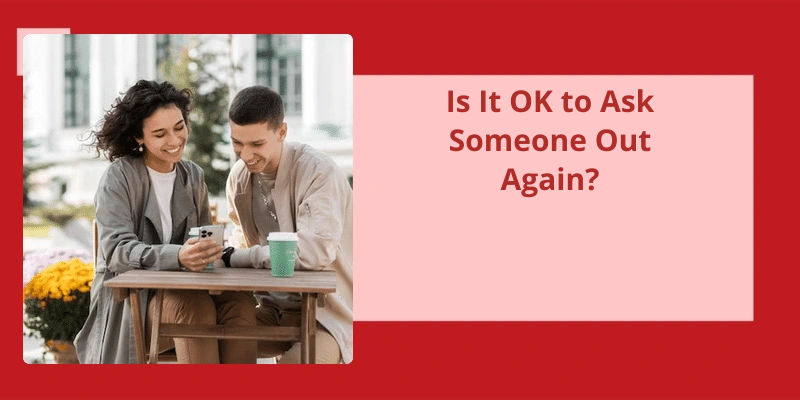It’s understandable to feel various emotions when physical intimacy isn’t consensual or unpleasant. The act of kissing is an intimate gesture that can evoke positive feelings such as love, passion, and desire. However, it can also trigger negative emotions such as disgust and repulsion. It’s essential to acknowledge and address these feelings to preserve healthy relationships. It’s vital to establish clear communication and boundaries with your partner, prioritizing your emotional well-being and self-respect. Remember that you deserve to be treated with care and respect in all aspects of your life.
Is It Normal to Feel Disgusted After Kissing?
It’s also possible that you may not have been ready to kiss that person. Sometimes, we engage in kisses out of obligation or pressure, and these situations can lead to feelings of disgust or discomfort. It’s important to take the time to assess your feelings and emotions before engaging in physical intimacy with someone.
Another factor that may contribute to feeling disgusted after kissing is hygiene. Make sure that your partner practices good oral hygiene, such as brushing their teeth regularly and using mouthwash. If your partner doesn’t have good oral hygiene, it can leave a bad taste in your mouth (literally). Communicate openly with your partner about the importance of good hygiene to maintain a healthy and enjoyable physical relationship.
If you find yourself experiencing extreme disgust or discomfort after kissing, it may be worth considering speaking with a therapist or counselor to discuss your feelings and any underlying trauma that may be contributing to the negative emotions.
However, it’s essential to communicate your feelings with your partner to ensure that they’re aware of your needs and boundaries. Honesty and openness are crucial in any physical relationship, and it’s vital to prioritize your emotional and physical well-being above all else.
Ultimately, it’s up to you to decide what you’re comfortable with and what feels right for you. Trust your instincts and take the time to cultivate healthy and enjoyable physical relationships that prioritize your well-being.
The Difference Between Disgusting vs. Uncomfortable Feelings During Kissing
Disgusting feelings during kissing refer to a strong and visceral reaction often associated with physical repulsion or disgust. On the other hand, uncomfortable feelings during kissing refer to a more mild and subjective discomfort, such as feeling awkward or unsure.
It’s no surprise that kissing someone can bring about a slew of emotions and sensations. After all, it’s a physical act that engages all your senses. But have you ever wondered how you’re supposed to feel after kissing someone? Well, the answer lies in the chemical reactions that occur in your brain during and after the kiss. The release of oxytocin, dopamine, and serotonin can leave you feeling on top of the world, and even deepen your emotional connection with the person you’ve locked lips with.
How Are You Supposed to Feel After Kissing Someone?
But how are you supposed to feel after kissing someone? The answer is subjective and varies from person to person. Some people might feel an immediate rush of emotions while others might take a while to process their feelings. It might also depend on the situation and the person you’re kissing. If it’s someone you’ve strong feelings for, the kiss might leave you feeling elated and over the moon. On the other hand, if it’s just a casual kiss, you might not feel any emotional attachment at all.
Kissing can also bring up a range of emotions depending on your personal experiences and expectations. It can remind you of past romantic encounters or create new feelings of excitement and possibility. If you’re kissing someone for the first time, you might feel nervous and unsure of what to expect. But once the kiss happens, you might feel a sense of relief and satisfaction.
It’s also important to note that kissing doesn’t always have to be romantic. Some people might kiss their friends or family members as a way to show affection and love.
If you feel uncomfortable or unsure about a kiss, it’s okay to step back and communicate your feelings. Kissing should always be a consensual and enjoyable experience for both parties involved.
Kissing is often considered as a gateway to intimacy, and a bad kiss can definitely put a damper on things. However, the issue might not be as simple as just having poor technique. There are various factors that can contribute to a bad kissing experience, and it’s important to understand the science behind it all.
Is Being a Bad Kisser a Turn Off?
Kissing itself is a complex act that involves a lot more than simply pressing lips together. It’s a reflection of your physical chemistry, your emotional state, and even your personality. It can be an act of passion or intimacy, a way to show affection, or simply a means of communication. With all of these factors at play, it’s no wonder that kissing can sometimes be a challenge.
One of the biggest reasons that being a bad kisser can be a turn off is because it can be seen as an indication of larger issues in a relationship. For example, if one person isn’t being attentive to the needs of their partner, or isn’t invested in the relationship, it may be reflected in their kissing style. Additionally, if one person isn’t comfortable with intimacy, it may be evident in their kissing.
If someone feels self-conscious or embarrassed about their kissing abilities, it can be a real blow to their self-esteem. This, in turn, can make it difficult for them to fully engage in a romantic relationship.
Of course, there are also the physical aspects of bad kissing. Bad breath, a darting tongue, and a wet sloppy kiss can all be major turn offs for many people. These issues can be addressed through good oral hygiene, a more gentle approach, and simply taking the time to understand what your partner likes.
Some people may be able to overlook minor issues, while others may find it to be a deal breaker. However, one thing is for sure: kissing isn’t a simple act, and there are many factors that can contribute to whether a kiss is enjoyable or not. By taking the time to understand your partners needs and preferences, you can improve your kissing abilities and strengthen your romantic relationships.
How to Improve Your Kissing Technique and Tips for Becoming a Better Kisser.
- Start off slow and build up the intensity
- Pay attention to your partner’s body language and responses
- Use your hands to explore and touch your partner’s body
- Focus on the lips, but don’t forget to kiss other areas like the neck and ear lobes
- Experiment with different techniques like nibbling, sucking, and gentle biting
- Keep your breath fresh with mints or gum
- Communicate with your partner and ask for feedback
- Be confident and enjoy the moment
However, sometimes the experience can leave us feeling a little confused or down afterwards, and that’s okay too. Whether your first kiss was amazing or underwhelming, it’s important to remember that everyone’s experience is different and there’s no right or wrong way to feel afterwards.
Is It Normal to Feel Bad After First Kiss?
However, what happens after the kiss varies from person to person. Some feel ecstatic, like they”ve just unlocked a new level of intimacy with their partner. Others feel disappointed, like what they”d imagined the experience to be was not quite what they”d expected. And then there are those who feel downright awful.
Feeling bad after a first kiss can be due to a number of reasons. It could be that the kiss itself was bad – perhaps it was too wet, or too forceful, or there was no chemistry at all. It could be that the person you kissed was not who you thought they were – maybe they werent as interested in you as you were in them, or they seemed to be into it only because they felt obligated. It could also be that you weren’t emotionally ready for the kiss – maybe you werent as invested in the relationship as you thought you were, or you werent prepared for the rush of emotions that followed the kiss.
Some may feel embarrassed, like they”ve failed in some way. Others may feel guilty, like they”ve somehow led the other person on. It’s important to remember that these feelings are normal and valid, and that it’s okay to take your time to process them.
This could be a close friend or family member, or a therapist if you feel comfortable. Talking about your feelings and getting reassurance and support can help you process your emotions and move forward.
It’s also important to remember that not every kiss is going to be perfect, and that’s okay. Kissing, like any other skill, takes practice and communication. If you’re interested in continuing to explore intimacy with your partner, try communicating openly about what you liked and what you didn’t like about the kiss, and what you’re both comfortable with going forward.
With communication and practice, you”ll hopefully feel more comfortable and confident in exploring intimacy with your partner.
How to Deal With Rejection After a First Kiss
It’s normal to feel a little upset if you’ve been rejected after a first kiss. It’s important to remember that not everyone will feel the same way as you do, and that’s okay. Take some time to process your emotions and move on. It’s not a reflection of your self-worth, and there are plenty of other people out there who’ll appreciate you for who you are.
It’s okay if you don’t want to kiss your boyfriend, and it’s important to communicate your feelings and boundaries clearly. There are many ways to express your disinterest in kissing, from straightforward explanations to more subtle hints. By being honest and respectful, you can maintain a healthy and fulfilling relationship with your partner.
What to Do When You Don’t Want to Kiss Your Boyfriend?
Sometimes, you may find yourself in a situation where you don’t want to kiss your boyfriend. It could be due to a number of reasons, such as feeling uncomfortable, not being attracted to them, or simply not being in the mood. If this is the case, it’s important that you communicate your feelings to your boyfriend in a straightforward and honest manner.
One way to let your boyfriend know that youre not interested in kissing is by simply telling them. It may feel uncomfortable to have this conversation, but it will ultimately lead to a more positive outcome in the long run. You could say something like, “Im sorry, but Im just not feeling up for kissing right now.”. This will let your boyfriend know that youre not interested without having to go into too much detail.
If youre not sure whether youre interested in kissing your boyfriend in the future, you could express this to them as well. It’s okay to be honest about your feelings and let your boyfriend know that you need more time before youre ready to take things to the next level. This will help set clear boundaries and avoid putting too much pressure on either of you.
It’s important to remember that you’ve the right to say no to anything that makes you uncomfortable, including kissing. It’s crucial that you prioritize your own feelings and desires, even if it means disappointing your boyfriend. If your boyfriend respects your boundaries and listens to your needs, this will ultimately strengthen your relationship and build a stronger foundation of trust and respect.
The most important thing is that you communicate your feelings in a clear and honest manner that prioritizes your own needs. By setting strong boundaries and being open with your partner, youll be able to build a healthy and fulfilling relationship based on mutual respect and understanding.
It’s understandable to feel nervous or worried about how your first kiss will go, but it’s important to keep in mind that it’s not always going to be perfect. While some may have a great first kiss experience, others may find it to be a bit awkward or clumsy. The key is to not let it discourage you and to keep exploring with your partner. Over time, you’ll both learn what each other likes and dislikes, leading to better, more enjoyable kisses.
Is It Normal for First Kisses to Be Bad?
It’s not uncommon for first kisses to be awkward or just not very good. This can be due to nerves, lack of experience, or simply not being used to the other persons kissing style. It’s important to remember that kissing is a very personal and intimate act, and it can take time to develop a comfortable rhythm with someone.
If your first kiss with someone was not great, it’s important not to let it discourage you. Instead, try to have an open and honest conversation with your partner about what you enjoyed and what could be improved upon. This will help you both feel more comfortable and confident with each other moving forward.
Sometimes, it’s also important to remember that a first kiss is just that – a first kiss. It’s not necessarily an indication of how the rest of your relationship will be. While physical intimacy is an important part of any romantic relationship, there are many other factors that contribute to a strong connection with someone.
Tips for Improving Your Kissing Skills
Improving your kissing skills requires paying attention to your partner’s cues and being mindful of your own movements. Experiment with different techniques and don’t be afraid to communicate with your partner. Make sure to maintain good hygiene and breath, and remember to have fun and be passionate.
Conclusion
In conclusion, the feeling of disgust is a complex emotion that arises from a multitude of factors, including personal preferences, cultural and societal norms, and individual experiences. When it comes to intimate gestures like kissing, it’s important to pay attention to one's own reactions and communicate them honestly with one's partner. While it can be difficult to navigate these conversations, it’s crucial to prioritize one's own needs and boundaries in any relationship. It’s also worth remembering that feelings like disgust aren’t necessarily a reflection of the partner's behavior or character, but rather a natural and valid response to certain stimuli. By acknowledging and respecting these responses, individuals can cultivate healthier and more fulfilling relationships with themselves and others.






